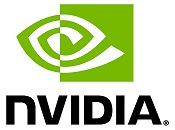 SANTA CLARA, Calif.—March 7, 2013—NVIDIA today announced support for Sony Computer Entertainment’s PlayStation®4 with the popular NVIDIA® PhysX® and NVIDIA® APEX® software development kits (SDKs).
SANTA CLARA, Calif.—March 7, 2013—NVIDIA today announced support for Sony Computer Entertainment’s PlayStation®4 with the popular NVIDIA® PhysX® and NVIDIA® APEX® software development kits (SDKs).
Game designers use PhysX and APEX technologies for collision detection and simulation of rigid bodies, clothing, fluids, particle systems and more across a wide range of platforms, including desktop PCs, game consoles, and mobile and handheld devices.
NVIDIA PhysX technology is the world’s most pervasive physics solution for designing real-time, real-world effects into interactive entertainment titles. The PhysX development environment gives developers unprecedented control over the look of their final in-game interactivity.
Taking PhysX technology content creation to the next level, NVIDIA APEX technology lets artists create intricate physics-enabled environments. They can expand the quantity and visual quality of destructible objects; make smoke and other particle-based fluids integral to game play; and create life-like clothing that interacts with the character’s body to achieve more realism in their games.
“Great physics technology is essential for delivering a better gaming experience and multiplatform support is critical for developers,” said Mike Skolones, product manager for PhysX at NVIDIA. “With PhysX and APEX support for PlayStation®4, customers can look forward to better games.”
NVIDIA PhysX and APEX technologies are designed to run on a variety of CPU architectures and can be accelerated by any CUDA® architecture-enabled NVIDIA GPU, GeForce 8-series or higher.
More information about the APEX and PhysX SDKs is available at https://developer.nvidia.com/apex and https://developer.nvidia.com/technologies/physx.
For more information on how GeForce GTX GPUs are dramatically changing the way games are played, visit www.geforce.com. The NVIDIA Flickr page hosts the entire lineup of GeForce product photos.

